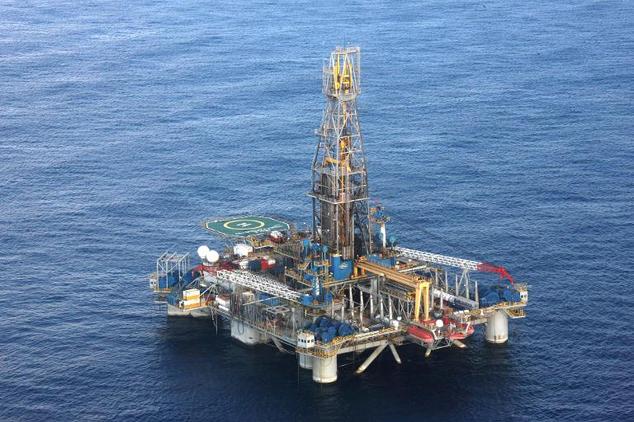Cyprus hydrocarbons ‘will stay at the bottom of the sea, if no solution is found,’ an international energy expert said, warning time is running out while Turkey is constantly escalating its threats and ambitions.
As one of the panellists at a discussion hosted by the NGO OPEK at the University of Cyprus, Charles Ellinas, a member of the Atlantic Council think tank said the recently established East Mediterranean Gas Forum is “useful”, but it is merely a talking shop which will only be of use “when we can utilise our energy resources in the peripheral markets.”
So far, he said, the natural gas discoveries in the eastern Mediterranean account for a cumulative 4 trln cubic meters of reserves, that account for about 2% of all world reserves.
So, any development in the vicinity will have no impact on global markets.
Ellinas, CEO of the eCNHC consultancy, considered a realist in the energy sector, said Cyprus faces several dilemmas and that it is running out of time for its ambitious energy programme.
The cost of exporting natural gas, either through the EastMed pipeline or otherwise is not financially viable, as the price would have to be about $8 per unit, including the cost for each operator, while the market price in Asia, the biggest buyer, is just $2.50.
Selling natural gas from the Aphrodite field to Egypt is also a stretched scenario, as the southern neighbour has recently cut back on its output from all its gas fields through the Idku plant which is operating at full capacity, Ellinas said, adding this is also affecting Egypt’s electricity production.
ExxonMobil has shown interest to develop a terminal at Vassiliko, but there again, it needs to keep costs low as long as Asian market prices are far from the $7-8 benchmark.
On the other hand, Ellinas said that European Commission chief Ursula von der Leyen’s new ‘Green Deal’ which will be unveiled in March, calls for a cutback on carbon-based fuels, including natural gas, unless this can be converted to eco-friendly fuels.
Her energy commission, Kadri Simson, has clearly stated that in the future, the EU needs to focus on electricity, both in output and efficiencies.
For the time being, European buyers do not plan to switch away from Russian supplies, as the cost there is $4.
“Turkey is taking advantage of our infatuation with natural gas, and it is time for a new initiative in [peace] negotiations.
Turkey is increasing its hegemony efforts in the area and is hardening its position. It would be an illusion to think that the US and the EU would rush to our aid in a conflict with Turkey,” Ellinas warned.
“Cyprus is in danger of being without any strategy and finding itself in a situation it cannot control. Turkey needs to cooperate with the EU and via Greece, which is why both sides in the Aegean do not really want conflict, but to resort to talks.”
Another panellist, UCy professor Aristotelis Constantinides, said that Turkey’s beef is with Greece and not with Cyprus.
Ankara, he said, has a different philosophy when it comes to delineating maritime borders, with Athens insisting on the ‘median line’ approach, while Turkey wants an ‘equitable’ solution, which would also incorporate its continental shelf, length of coastline, as well as other factors.
“No court ruling on the Law of the Seas has been conclusive in any legal battle, and each one is reviewed and judged differently,” said Constantinides
He said the recent Turkey-Libya MoU on setting maritime borders and exclusive economic zones (EEZ) should be viewed with more scrutiny and not just if it is considered legal or not.
All the more reason, Ellinas said, to restart the stalled Cyprus talks, as Turkey builds its military arsenal, is establishing alliances and is not at all isolated, as some have led us to believe.









